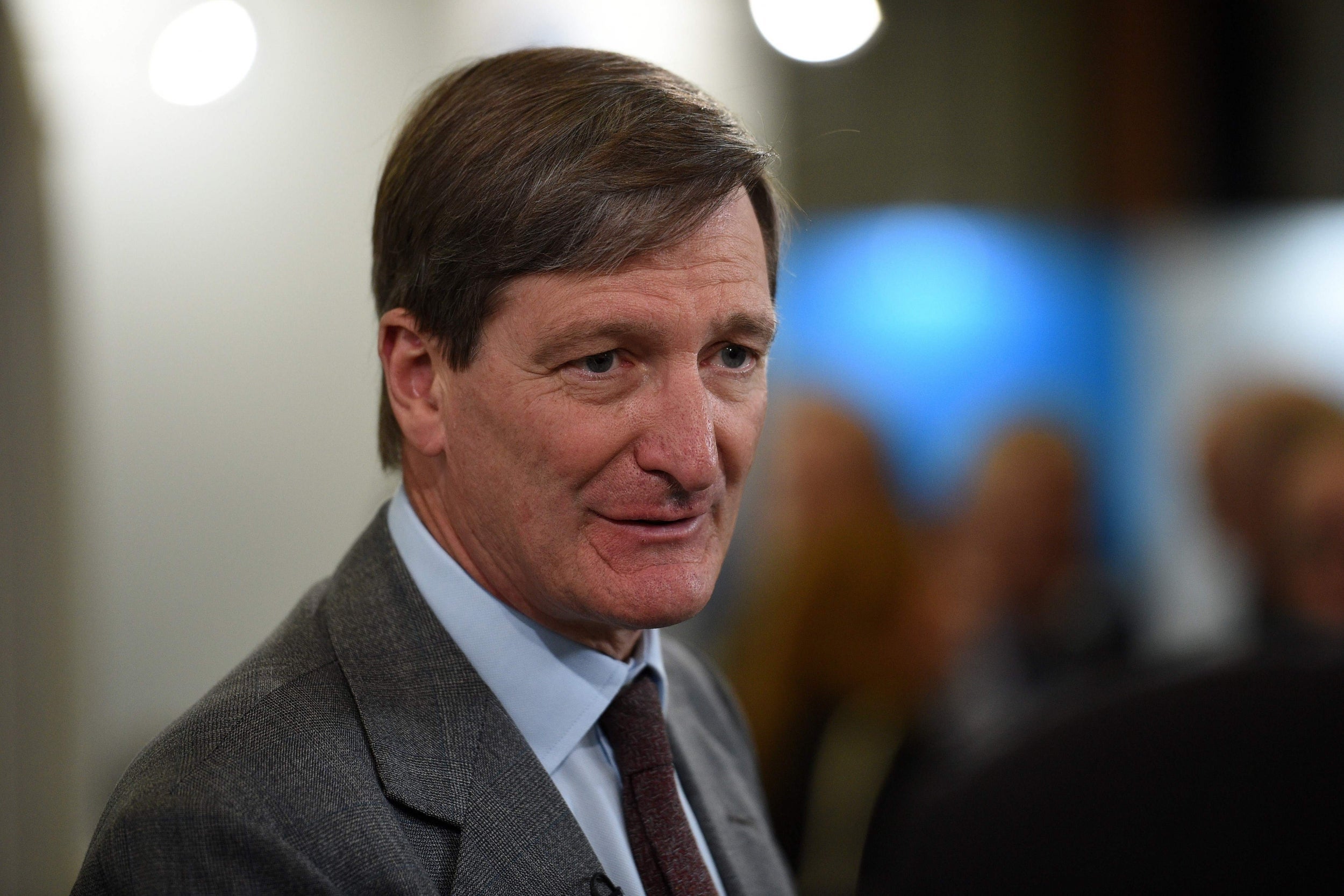Boris Johnson faces cross-party backlash over plan for Chris Grayling to run intelligence watchdog
Prime minister also accused of politicising impartial role
Your support helps us to tell the story
From reproductive rights to climate change to Big Tech, The Independent is on the ground when the story is developing. Whether it's investigating the financials of Elon Musk's pro-Trump PAC or producing our latest documentary, 'The A Word', which shines a light on the American women fighting for reproductive rights, we know how important it is to parse out the facts from the messaging.
At such a critical moment in US history, we need reporters on the ground. Your donation allows us to keep sending journalists to speak to both sides of the story.
The Independent is trusted by Americans across the entire political spectrum. And unlike many other quality news outlets, we choose not to lock Americans out of our reporting and analysis with paywalls. We believe quality journalism should be available to everyone, paid for by those who can afford it.
Your support makes all the difference.Boris Johnson is facing a cross-party backlash over the expected appointment of Chris Grayling as chair of parliament’s intelligence watchdog.
The prime minister’s preferred nominee was branded “dangerous” and “truly astonishing” by opposition parties, while Dominic Grieve, who was the chair of the Intelligence and Security Committee (ISC) in the last parliament, accused Mr Johnson of trying to politicise a vital institution.
“The whole point about this committee is it is non-partisan,” Mr Grieve, a former Tory attorney general, told BBC Radio 4’s Today programme on Friday.
“The prime minister nor anybody should be seeking to tell the committee who should be the chair; it is for the committee to decide under the statute which sets it up.
“I don’t have a view for who the right chair should be apart from the fact I’m absolutely clear in my mind it should be a matter for the committee and that the committee should not be put under party political pressure as to who the chair should be.”
Mr Grayling, who is widely seen as having been an ineffective cabinet minister and has sometimes been given the nickname “failing Grayling”, is widely reported to be the prime minister’s pick for the committee.
Mr Johnson was also criticised after announcing that the civil service role of national security adviser would also become a political appointment.
Nick Thomas-Symonds, the shadow home secretary, said of Mr Grayling’s expected appointment that it was “truly astonishing” for the prime minister to politicise a “vital national security role at a critical time”.
“It beggars belief that the apparently strongest Conservative candidate has overseen disasters such as the botched privatisation of probation services, a ferry agreement with a firm with no ferries, and the mishandling of the East Coast rail franchise,” he said.
“Yet again, this is an example of the prime minister seeking to work in his own interest, rather than the national interest. The work of the ISC is vital and the country will accept no further delays in the publication of the long-awaited Russia report.”
Mr Grayling’s reputation also prompted ridicule from critics. Liberal Democrat leadership candidate Layla Moran said: “This could be the first time in history that Chris Grayling appears in the same sentence as intelligence.

“This is the man who paid a ferry contract to a company with no ships and oversaw the catastrophic privatisation of probation. That he is being put in charge of this committee shows the government’s scant regard for national security.”
After Downing Street touted Mr Grayling’s “extensive experience” for the role, Labour MP Wes Streeting said: “It’s our extensive experience of Chris Grayling’s ‘extensive experience’ that worries us... “
The SNP’s Westminster leader, Ian Blackford, said: “The chair of the ISC has long been appointed by consensus and this move does nothing less than undermine the role of the ISC and breach its independence.
“The likely nomination of Chris Grayling as chair – who has a distinct record in government as a jack of all trades and master of none – will deliver a blow to the effectiveness of the committee’s work.
“The ISC must be able to hold the confidence of parliament and get on with the job of properly overseeing key security matters and addressing the diverse threats facing the UK. This latest attack on government institutions from Cummings and Co, however, marks yet another dangerous step.”
Asked what qualities the prime minister thought Mr Grayling would bring to the ISC, a Downing Street spokesperson said: “All the nominees are senior parliamentarians with an extensive range of experience in government, opposition and parliament. We believe that will ensure robust and effective scrutiny of the security services.”
Asked whether Tory members of the committee were being instructed to back Grayling as chair, the spokesperson said: “The chair will be agreed by the committee itself once it has gone through all the stages in parliament.”

Join our commenting forum
Join thought-provoking conversations, follow other Independent readers and see their replies
Comments